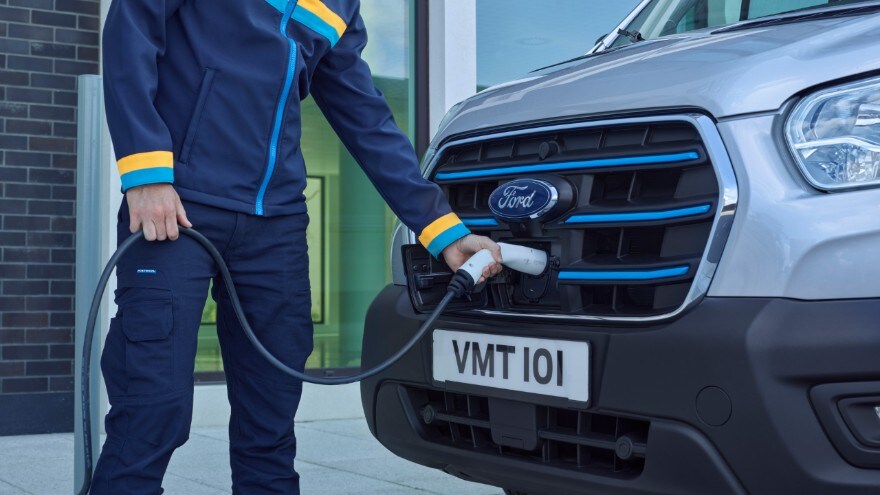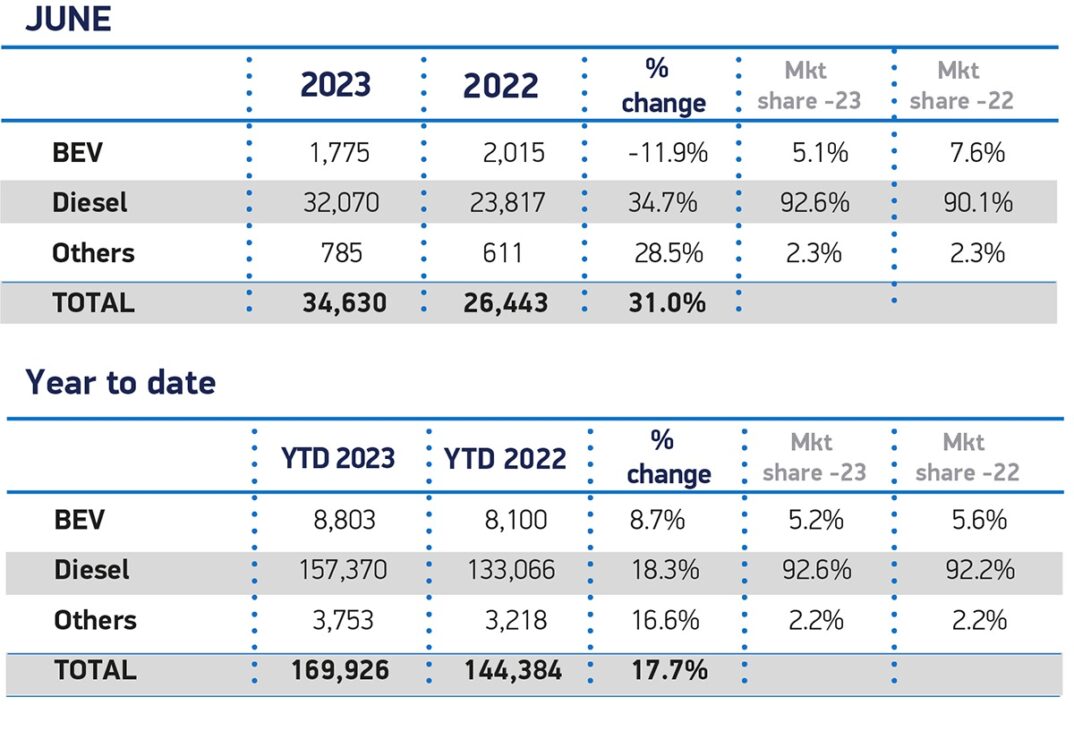The simple answer is not really.
According to data from the Society of Motor Manufacturers and Traders, (SMMT), June saw even fewer electric vans registered this June than in June 2022. Having said this, the first six months of this year did see an 8.7% rise in battery electric van registrations in the UK.
Whilst this may seem like good news, 8.7% more than not very much is still not very much.
The overall share of the new van registrations so far this year that are battery powered is just 5.2% of the total market – 8,803 vans compared to a whopping 157,370 diesel vans.
The poor performance of electric vans is in contrast to the march of alternatively powered cars. So far this year, only 45% of new car registrations were petrol or diesel with BEV making up over 16% of new registrations. It’s worth noting that there are large numbers of mild hybrid electric vehicles (essentially petrol or diesel vehicles with a larger alternator) that make up 20% of this car market.
The fact remains that electric cars are three times more popular than electric vans.

Mike Hawes, SMMT Chief Executive, said, “As we reach the year’s midway mark, the surge in light commercial vehicle registrations is good news and delivers continued optimism to the market. The fall in electric van uptake just at the time when we need it to grow is, however, very concerning. Despite the continued availability of the plug-in van grant, more needs to be done to give operators the confidence to make the switch. This means a long-term plan which supports purchase and helps overcome some of the barriers to the installation of van-suitable charging infrastructure, given the unique needs of this sector.”

Why Vans are Different to Cars
Many more new petrol cars are sold than diesel cars, whereas there are hardly any petrol vans sold. This is typically because most cars spend all day sitting in a drive or office car park, whereas vans are out on the roads making a living. This means greater mileages in a larger vehicle meaning the benefits of economy and longevity of a diesel engine far outweigh any considerations of the environment or impending legislation changes.
It is this difference in the duty cycle of light commercial vehicles and cars that explains away the lacklustre sales of battery vans. A car can be charged on the drive or at the office and for most of us one charge a week will be enough with around 300 miles to play with. A van can easily cover these distances in a day. This means daily charging – or more frequently for higher mileage motorway running at full load. This brings us to the lack of available rapid chargers across the UK.
Not only do we need to upgrade the petrol stations and motorway service areas, we also need these chargers installed in car parks and roadside up and down the country. This means huge investment in the underground cabling to these sites as well as for the chargers themselves. That’s before we get started on the planning approvals required for these chargers at the roadside.
With targets for the phasing out of the internal combustion engine looming ever closer, all eyes need to be on these developments or else the home deliveries that we have all become addicted to during lockdown will struggle.
